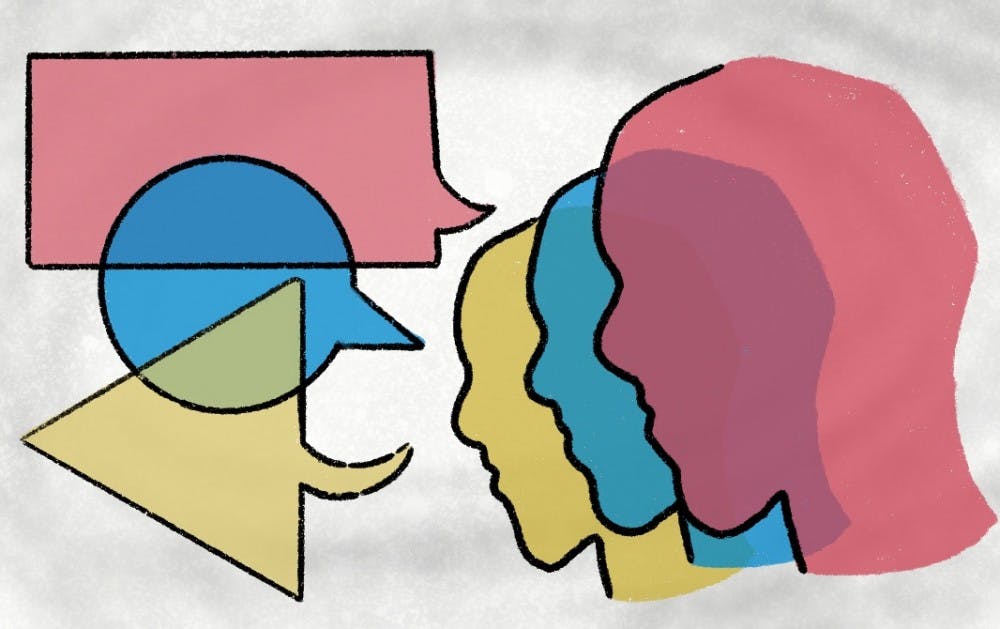Notre Dame was up in flames earlier this week and, in some ways, this was representative of the ongoing issues facing students, countries and online communities.
Both online and offline, there is a tug of war between status and morals in which, much of the time, morals don't prevail. From hate speech on Facebook to an infamous golf scandal, these conversations have been ongoing and seem to be coming to a head.
Notre Dame Cathedral will rise again. But it will never be the same. | By Stephen Stromberg
As flames engulfed the famous cathedral, many around the world watched over TV, Youtube, Twitter and other digital means. The largest takeaway from Notre Dame's tragic destruction was the loss of history as its parts went up in flames and the social media frenzy that followed. History took a major hit this week and the futures of so many will as well. Just remember not to flaunt your memories on social media in this global period of mourning.
College students should recognize the historical significance of this and, as Stromberg wrote, "How we deal with the world’s inescapable impermanence underpins human culture. As Notre Dame burns, so does a piece of our ability to relate to the past, and the future."
Opinion: Facebook Needs To Crack Down On Hate Speech. So Does Mainstream Media. | By Muddassar Ahmed
There has been an ongoing battle with hate speech on online platforms and the efforts have been helpful, but not always effective. Community guidelines have been put in place for Instagram, Twitter and Facebook. However, these solutions may not last for long.
As technology and social media evolve so will hate speech and other harmful forms of expression. This means that in order to be proactive as opposed to reactive, platforms must take steps to change and evolve. It may be difficult, but accountability for users and for social media platforms is necessary to successfully combat this.
Everyone’s Income Taxes Should Be Public | By Binyamin Applebaum
This headline may seem like common sense, but as the last few weeks (and many years before that) have shown, that isn't the case. There is much pushback on publicizing this information as well as holding people accountable. In reality, the solution begins with students holding representatives accountable, even starting on Twitter. Asking for taxes can prove to be a difficult task but, as Applebaum wrote, "The question is whether Americans are willing to endure a little sunlight in the interest of fairness and equality."
Privacy Is Too Big to Understand | By Charlie Warzel
"Today, our control is chipped away in ways large and small," wrote Warzel on the extensive term — privacy. This applies to our real and virtual life, but much of it is revolved around control, more specifically, how little of it we have. Many may not understand how much of our lives is not private and how easy it is to give away our private details. Thus, it is important to recognize the impact of disclosing personal information and how it transcends platforms.
Trump and Obama saluted Tiger Woods. Why some others may not. | By Amy Bass
Should the phrase "separating the art from the artist" apply to more than just art? I think so. Tiger Woods' victory has welcomed praise and criticism from many, although there seems to be an overwhelming push to forget his indiscretions. I understand the significance of winning the Masters at the age of 43, yet I do not think overlooking his sex scandal best conveys the lesson that must be learned.
Yes, people do make mistakes but, celebrities must be aware of their added pressure when making decisions and the impact they will have for the rest of their career. This situation should also serve as an example for non-celebrities to not overlook indiscretions and past mistakes. Art (or sport) is important, but the actions of the artists are just as important.
Reach the columnist at mfoxall@asu.edu and follow @mayafoxall on Twitter.
Editor’s note: The opinions presented in this column are the author’s and do not imply any endorsement from The State Press or its editors.
Want to join the conversation? Send an email to opiniondesk.statepress@gmail.com. Keep letters under 500 words and be sure to include your university affiliation. Anonymity will not be granted.
Like The State Press on Facebook and follow @statepress on Twitter.




